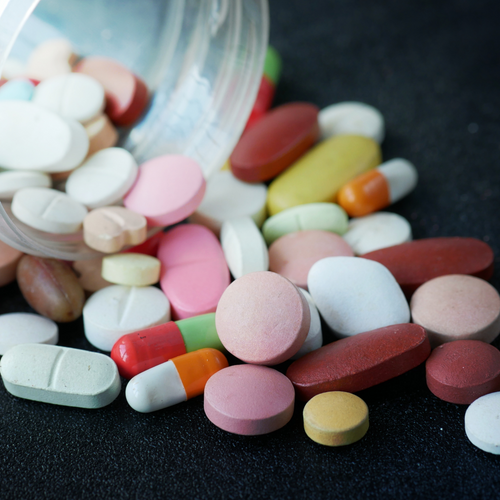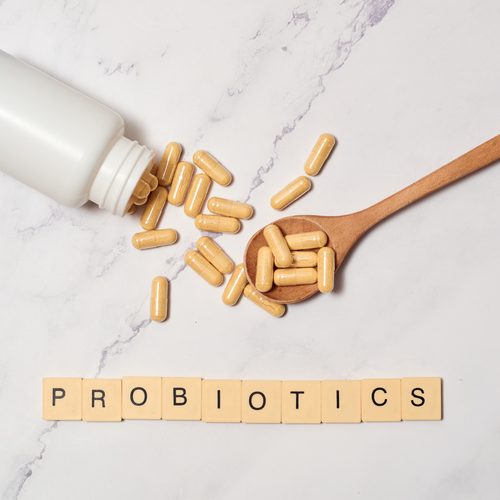What to remember :
Intestinal flora is essential for digestion, immunity and the overall balance of the body.
Certain medications – including antibiotics, anti-inflammatories, antacids and antidepressants – can disrupt this balance.
The effects of an imbalance in the flora can be digestive (bloating, diarrhea, etc.), immune or even metabolic in the long term.
A diet rich in fiber and fermented foods can help preserve flora.
Do not stop treatment without medical advice , but remain attentive to your intestinal health and talk to your doctor.
Introduction
We've all taken medications, whether occasionally for a cold or regularly for a chronic illness. But did you know that some treatments can disrupt the delicate balance of our intestinal flora? This invisible "second skin," made up of billions of microorganisms, plays an essential role in our digestion, our immunity, and even our general well-being. In this article, we'll discover how certain medications can affect this precious flora, what the possible impacts are, and, above all, how to take care of it on a daily basis.
What is intestinal flora?
The intestinal flora, also called intestinal microbiota , is a true living ecosystem that inhabits our intestine. It brings together billions of microorganisms—bacteria, viruses, fungi, yeasts—that work together to ensure several vital functions.
Among its main roles, the intestinal flora helps digest food, produces certain vitamins, protects our immune system, and maintains the intestinal barrier against harmful elements. A balanced microbiota is therefore essential for our health, while an unbalanced intestinal flora — dysbiosis —can promote digestive disorders, infections, or even broader problems such as inflammation.
Which medications impact the flora?
Certain medications can disrupt the delicate balance of our intestinal flora, sometimes temporarily, sometimes more permanently.
-
Antibiotics are best known for their impact: by destroying the bacteria responsible for an infection, they also eliminate some of the "good" bacteria in our microbiota. This loss of diversity can open the door to imbalances, or even the proliferation of unwanted bacteria;
-
Nonsteroidal anti-inflammatory drugs (NSAIDs), often used for pain or inflammation, can alter the intestinal barrier and promote irritation;
-
Antacids (proton pump inhibitors, PPIs), prescribed to reduce gastric acidity. By altering digestive pH, they reduce bacterial diversity and promote the emergence of certain unwanted bacteria, increasing the risk of intestinal infections such as those caused by Clostridium difficile;
-
Certain antidepressants and other long-term treatments have also been shown, in recent studies, to have an influence on the diversity and balance of the microbiota.
Not all medications have the same effect: some significantly disrupt the flora, others much less, and the impact also varies from one person to another.
Effects of drugs on intestinal flora
When the intestinal flora is disrupted by certain medications, the effects can be felt quickly... and sometimes last over time.
Immediate digestive problems
This is the most common sign of a microbiota imbalance. After antibiotic treatment, for example, the massive destruction of beneficial bacteria can lead to bloating, diarrhea, or constipation. Nonsteroidal anti-inflammatory drugs (NSAIDs) can also weaken the intestinal mucosa and promote digestive disorders, especially if taken regularly.
Impact on energy and immunity
The microbiota plays a key role in the production of certain vitamins, nutrient absorption, and immune system modulation. When it is depleted (such as after taking antibiotics or proton pump inhibitors), it may be less able to perform these functions, which can contribute to feelings of fatigue and a decrease in natural defenses.
Possible longer-term consequences
Prolonged disruptions to the microbiota can promote a chronic inflammatory state, sometimes linked to the regular use of NSAIDs, but also to certain classes of antidepressants, which modulate bacterial balance and can influence energy metabolism. These changes have been associated, in some studies, with weight gain, metabolic disorders, and increased susceptibility to certain digestive diseases.
Clearly, even if all medications do not cause the same effects, it is important to know their potential impact on our flora to take better care of it before, during and after treatment.
How to support your intestinal flora while taking medication?
Certain prescriptions are essential for your health. But that doesn't mean your microbiome has to pay the price. Here's how to support it.
Focus on a protective diet
During (and after) treatment, pamper your bacteria by offering them what they like: fiber (vegetables, legumes, whole grains, fruits, oilseeds) and fermented foods rich in probiotics such as plain yogurt, lacto-fermented tofu , kefir , kombucha or even raw sauerkraut. These foods nourish and contribute to the development of good bacteria and promote a return to balance.
Provide targeted reinforcements
Well-selected probiotics can contribute to the balance of intestinal flora, including in cases of imbalance linked to various lifestyle factors. At DIJO, L'Indispensable probiotiques combines scientifically documented strains to support this balance on a daily basis.
Limit unnecessary catches
Medications can have a real impact on the microbiota, especially with prolonged use. Therefore, avoid self-medication and always talk to your doctor about possible alternatives or the optimal duration of treatment.
In summary : supporting your intestinal microbiota means providing it with a good diet, possibly a targeted boost, and limiting unnecessary attacks.
Conclusion
Our intestinal flora is a precious… and fragile ecosystem. Certain medications, essential in many situations, can disrupt this balance. Staying well-informed, adopting eating habits that nourish our good bacteria, and limiting unnecessary treatments are all simple steps to maintain intestinal health.
Sources :
[1] Inserm, 2021, Intestinal microbiota (intestinal flora) - A serious avenue for understanding the origin of many diseases, consulted from: https://www.inserm.fr/dossier/microbiote-intestinal-flore-intestinale/#comprendre-le-r%C3%B4le-du-microbiote-intestinal
[2] Huang, C., Feng, S., Huo, F., & Liu, H. (2022). Effects of Four Antibiotics on the Diversity of the Intestinal Microbiota. Microbiology spectrum, 10(2), e0190421. https://doi.org/10.1128/spectrum.01904-21
[3] Rekatsina, M., Paladini, A., Cifone, MG, Lombardi, F., Pergolizzi, JV, & Varrassi, G. (2020). Influence of Microbiota on NSAID Enteropathy: A Systematic Review of Current Knowledge and the Role of Probiotics. Advances in therapy, 37(5), 1933–1945. https://doi.org/10.1007/s12325-020-01338-6
[4] Zhang, J., Zhang, C., Zhang, Q., Yu, L., Chen, W., Xue, Y., & Zhai, Q. (2023). Meta-analysis of the effects of proton pump inhibitors on the human gut microbiota. BMC microbiology, 23(1), 171. https://doi.org/10.1186/s12866-023-02895-w
[5] Xu, F., Xie, Q., Kuang, W., & Dong, Z. (2023). Interactions Between Antidepressants and Intestinal Microbiota. Neurotherapeutics: the journal of the American Society for Experimental NeuroTherapeutics, 20(2), 359–371. https://doi.org/10.1007/s13311-023-01362-8













